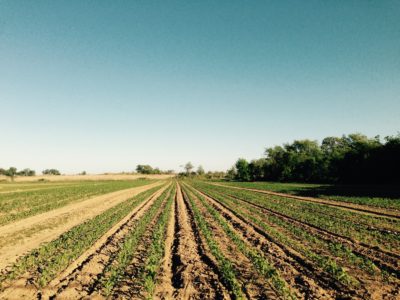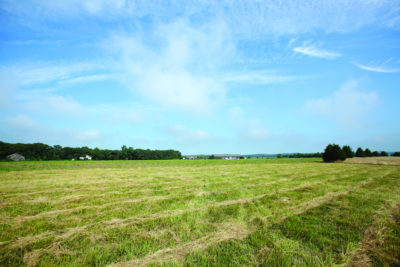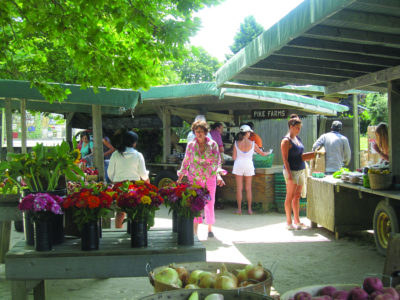Blog
The Peconic Land Trust and Farmland Protection
photo by Christine Kraft
By Yvette DeBow-Salsedo
Why Farms for the Future?
For over 34 years, the Trust has worked with farmers to prepare plans for their farms that include conservation while also protecting the valuable equity of family lands. As a result, over 5,000 acres of farmland have been protected for future farmers representing a wide range of agricultural uses: fruits and vegetables, nursery and vines, livestock and grain, horticulture and equestrian.
Farming, and its diversity, is an important part of maintaining the community character of eastern Long Island while also supporting our local economy through jobs and tourism.
The Trust’s work with the farming community was born when our President and Founder, John v.H. Halsey, learned about the sale of his neighbor’s 10-generation farm in 1980 in Southampton. The family’s inability to keep the family farm due to inheritance taxes — and the lack of information available to provide advice and councel on alternatives to development — prompted John to explore solutions, ultimately founding the Trust in 1983.
In the early 2000s, a new issue emerged: protected farmland was being sold to non-farmers as amenities to adjacent development including lawns for large estate — at values unattainable by food farmers. When efforts to conserve farmland began over 40 years ago, no one anticipated that any one other than farmers would want to acquire protected farmland. If we didn’t recognize this new reality, there was a very real possibility that we would lose food production within a generation given the escalating values of protected farmland.
![block.image[0].title](/assets/images/vegetables.jpg)
And such was the beginning of our Farms for the Future Initiative. Through this initiative, the Trust is working with our public and private partners to address issues of accessibility, affordability and sustainability. Through purchase, leasing, resale, education and mentoring the Trust is working with farmers –- from the multi-generational to the start up -– to ensure a future where fresh fruits and vegetables, dairy, meat, poultry, shellfish and more are still grown on Long Island.
Today, the Trust:- has sold and leased hundreds of acres of farmland to farmers,
- supports community supported agriculture by operating Quail Hill Farm, one of the oldest CSAs in the US,
- has trained over 120 farm apprentices,
- manages a farm incubator program for new farmers on the North and South Forks,
- has protected over 5,000 acres of farmland,
- partners with New York State to provide capital grants to new and established farmers for equipment, food safety, etc.
- works with local government and the agricultural community to assure that a portion of protected farmland is accessible and affordable to farmers who grow food.
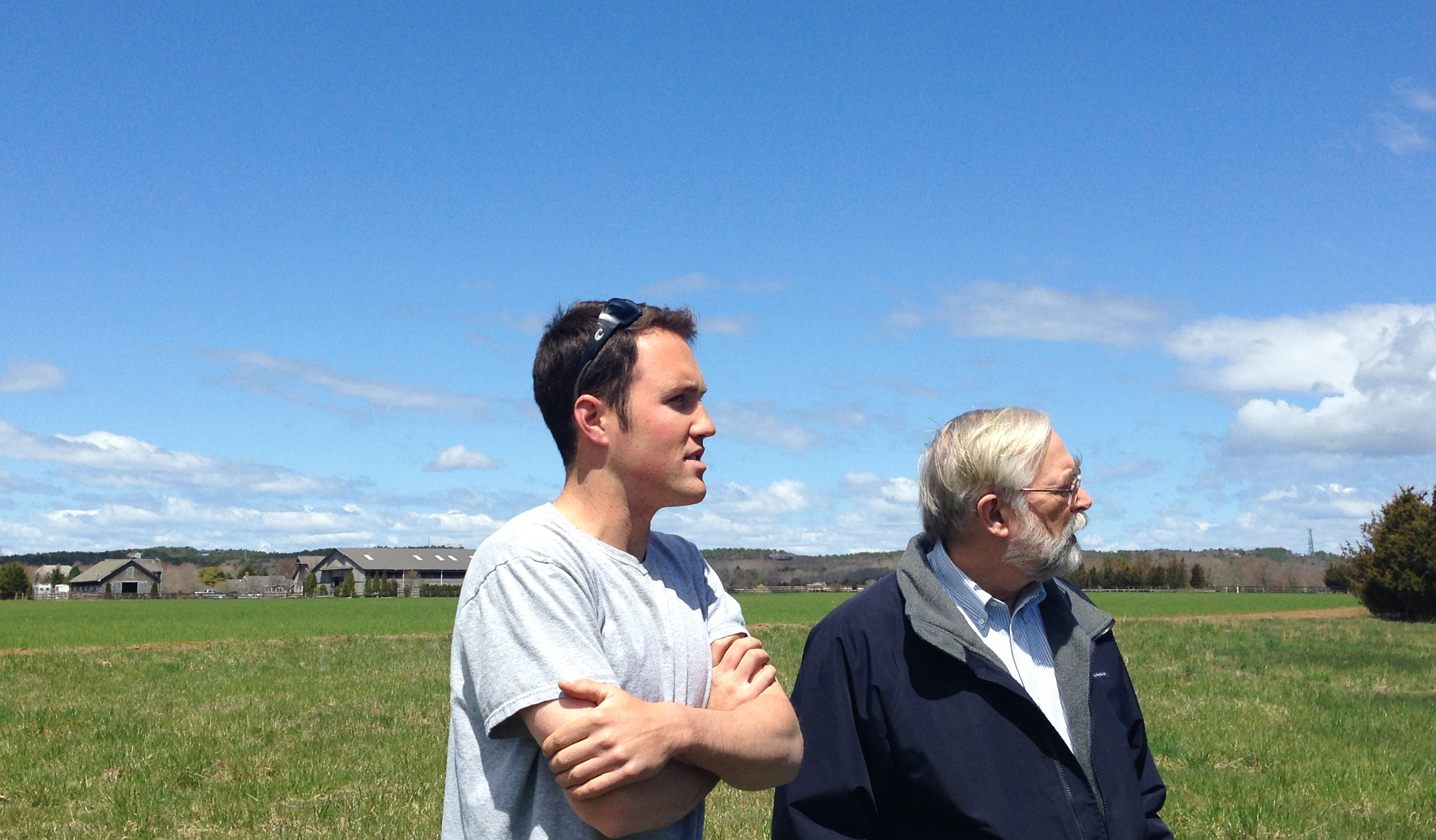
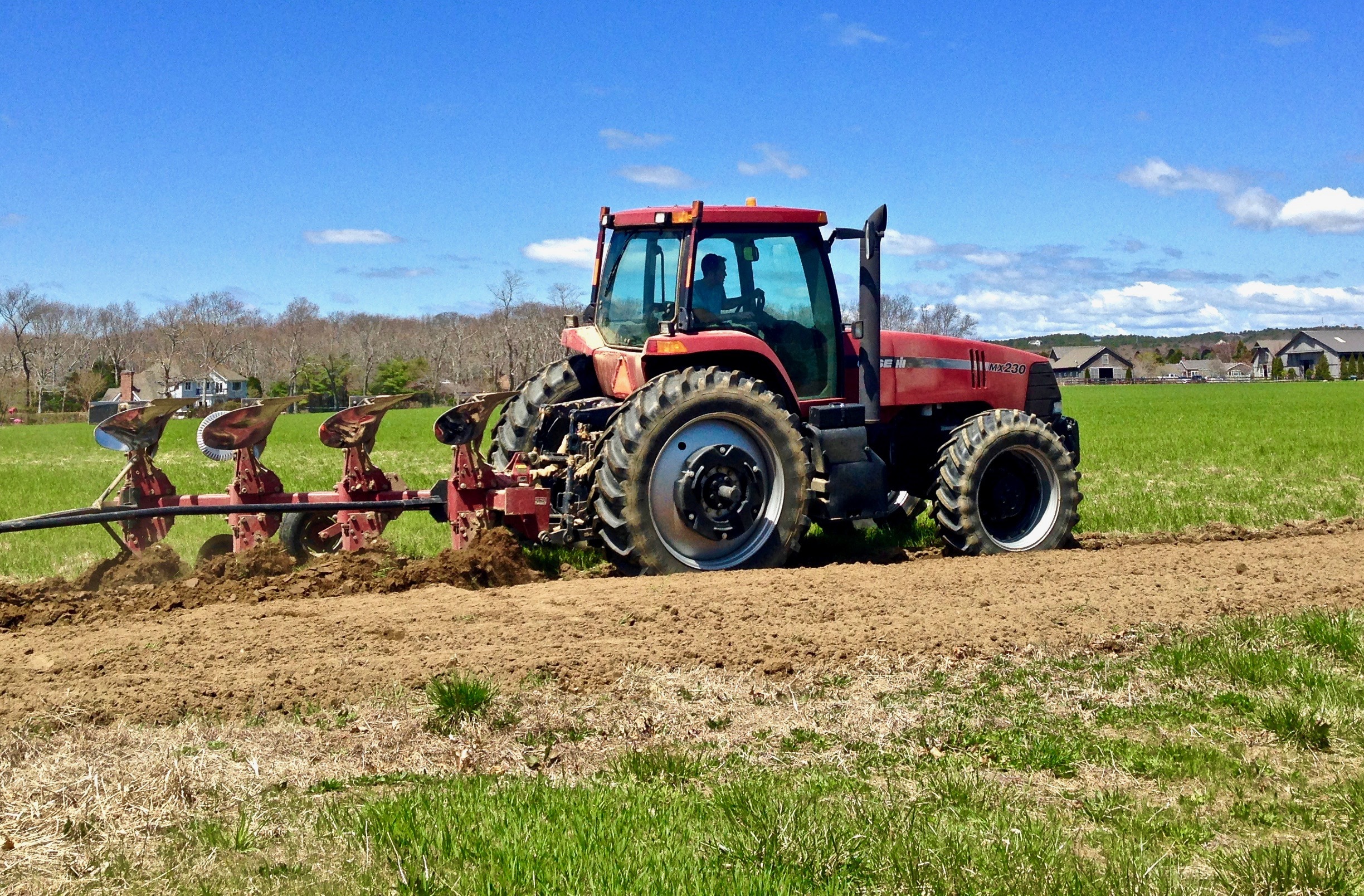
Both the Trust and the Town of Southampton have used enhanced easements to protect over 200 acres of farmland for food production. New tools such as enhanced easements include affirmative & affordable farming covenants with resale restrictions. One beneficiary is Hank Kraszewski III, a young third generation farmer to whom the Trust sold 19 acres of farmland protected in January 2015.
While John was not able to save the farm next door in the early 1980s, through the efforts of many, the Peconic Land Trust is ensuring a future for farming on Long Island.


